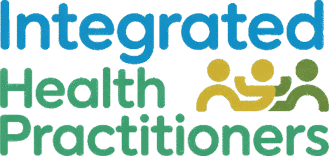Integrating Tech in Allied Health

Have you ever considered how technology can bridge gaps in patient care and empower individuals on their health journeys? In the evolving landscape of healthcare, emerging technologies are not only shaping practices but also enhancing patient outcomes.
What You Will Learn
- Telehealth improves access to healthcare, particularly for patients in underserved areas.
- Artificial Intelligence (AI) enhances diagnostic accuracy and workflow efficiency in allied health practices.
- Mobile health applications empower patients by promoting self-management and engagement with their health data.
- Digital platforms facilitate seamless health data management, improving coordination among healthcare providers.
- Continuous learning and training are essential for allied health professionals to effectively integrate new technologies.
- Fostering digital health literacy among patients enhances their confidence and engagement with new healthcare technologies.
Emerging Technologies Transforming Allied Health Practices
A visual overview of how telehealth, AI, and mobile health applications are reshaping integrated allied health practices.
Telehealth: Enhancing Access & Convenience
Remote consultations improve access for all, particularly those with mobility challenges or in underserved areas.
- Improved access to specialists
- Reduced travel time & costs
Artificial Intelligence: Boosting Efficiency
AI revolutionizes diagnostics and streamlines workflows, allowing professionals to focus on patient care.
- Analyzes medical images
- Automates documentation
Mobile Health Apps: Empowering Patients
These apps empower patients to manage their health, track progress, and communicate with providers.
- Tracks health metrics
- Personalized health plans
Digital Platforms: Data Management & Care
Enables seamless data exchange and management, crucial for coordinating care across various professionals.
- Seamless data exchange
- Coordinated care
Understanding the Impact of Emerging Technologies on Integrated Allied Health Practices
As we navigate the rapidly evolving landscape of healthcare, it's important to recognize how emerging technologies are reshaping integrated allied health practices. From telehealth innovations to artificial intelligence (AI), these advancements are not only enhancing the way we deliver care but also improving patient outcomes. At Integrated Health Practitioners, we believe in the power of collaboration among healthcare professionals to harness these technologies effectively.
With an integrated approach, we can provide comprehensive care that meets the individual needs of our clients. This article will delve into various technological advancements that are transforming patient care, enabling us to serve our communities better. For a deeper understanding of this collaborative model, explore understanding integrated allied health care.
Transformative Role of Telehealth in Patient Care
One of the most significant advancements in healthcare has been the rise of telehealth. This technology enables remote consultations, allowing patients to connect with their health practitioners from the comfort of their homes. It's particularly beneficial for individuals who may have mobility challenges or live in underserved areas.
- Improved access to specialists
- Convenience of virtual appointments
- Reduction in travel time and associated costs
- Increased flexibility in scheduling
By leveraging telehealth, we can enhance patient engagement and ensure that individuals receive timely care without the barriers that traditional visits might present. At Integrated Health Practitioners, we have witnessed firsthand how this technology fosters a stronger connection between patients and their healthcare teams.
Artificial Intelligence: Enhancing Diagnostics and Workflow Efficiency
Artificial Intelligence (AI) is making waves in the healthcare sector, revolutionizing diagnostics and streamlining workflows. By utilizing AI, allied health professionals can enhance the accuracy of diagnoses and improve the efficiency of documentation.
- AI algorithms assist in analyzing medical images
- Automated documentation reduces administrative burdens
- Predictive analytics help in anticipating patient needs
Integrating AI into our practices allows us to focus more on patient care rather than administrative tasks. It's exciting to see how these tools can support our mission at Integrated Health Practitioners to deliver high-quality, personalized care.
Mobile Health Applications: Bridging Gaps in Patient Care
Mobile health applications are another game-changer in integrated health practices. These applications empower patients to take charge of their health by enhancing engagement and promoting self-management.
- Tracking health metrics and progress
- Accessing educational resources and personalized plans
- Facilitating communication with healthcare providers
With mobile health applications, patients are better equipped to manage their health journeys. At Integrated Health Practitioners, we encourage our clients to utilize these tools as part of their holistic wellness strategies, ensuring that they remain active participants in their care. Discover more about effective strategies for balanced wellness living.
Digital Platforms: Revolutionizing Health Data Management
As we continue to explore the impact of technology in healthcare, the importance of digital platforms becomes increasingly clear. These platforms enable seamless data management and exchange, which is vital for coordinating care across various allied health professionals.
In the next sections, we’ll discuss how interoperability and real-time monitoring can significantly enhance patient outcomes. So let's dive deeper into the digital transformations shaping our healthcare landscape!
We Want to Hear From You!
As we discuss the pivotal role of technology in integrated allied health practices, we’d love to know your thoughts! How do you feel about the integration of telehealth, AI, and mobile applications in your healthcare experience? Share your insights below:
Embracing the Future of Integrated Allied Health Practices
As we look forward to the future, it's clear that emerging technologies will play a pivotal role in transforming integrated allied health practices. At Integrated Health Practitioners, we’re excited about the opportunities that lie ahead! However, with these advancements come the responsibility to prepare ourselves and our patients for a new era of healthcare. To learn more about how different healthcare professionals collaborate, read about allied health in team care.
To successfully navigate this technological landscape, allied health professionals need to embrace change and adapt their practices. This means not only understanding new technologies but also figuring out how to effectively integrate them into our existing workflows.
Preparing for the Next Wave of Technological Advancements
Allied health professionals can take proactive steps to prepare for the next wave of technological advancements. Here are some strategies to consider:
- Stay informed about the latest trends in telehealth, AI, and digital health.
- Participate in professional networks and forums to exchange ideas and best practices.
- Engage in discussions about the implications of these technologies on patient care.
- Collaborate with tech experts to understand practical applications in your field.
By remaining engaged and proactive, we can ensure that our practices not only keep pace with change but also lead the way in adopting innovative solutions that enhance patient care.
Training and Upskilling: Essential for a Technology-Driven Future
One of the keys to thriving in a technology-driven future is embracing training and upskilling. As health practitioners, we must be equipped with the necessary skills to utilize emerging technologies effectively. Here are some valuable resources for allied health professionals:
- Online courses focusing on telehealth and digital health platforms.
- Workshops on AI applications and their integration into clinical practice.
- Webinars hosted by industry leaders on current and future trends.
- Mentorship programs to foster collaboration and knowledge-sharing within your team.
Investing in our education not only benefits us as professionals but also enhances the quality of care we deliver to our clients. As I always say, knowledge is power!
Digital Health Literacy: Empowering Patients in Technology Adoption
As we incorporate new technologies into our practices, it's equally important to focus on digital health literacy for our patients. This ensures they feel comfortable and empowered to embrace these advancements. Here are some ways to enhance patient engagement with new technologies:
- Provide educational resources that explain how to use telehealth services effectively.
- Encourage questions and discussions about their concerns regarding new digital tools.
- Offer hands-on demonstrations for using mobile health applications.
- Foster a supportive environment where patients feel confident in their technology use.
By prioritizing digital health literacy, we not only enhance patient engagement but also improve health outcomes. Let's work together to ensure our clients are equipped to navigate their health journeys in this tech-savvy world!
Summarizing Key Insights and Next Steps
As we conclude this section, it is essential to recap the key benefits of integrating technology into allied health practices. Technologies such as telehealth, AI, and digital platforms can significantly enhance patient care through improved access, personalized treatment, and better data management.
I encourage you to reflect on how these advancements can serve your practice and your patients. The future of healthcare is bright, and by embracing these tools, we can create a more connected and efficient health ecosystem.
Encouraging Adoption and Continuous Learning
In closing, I urge all allied health professionals to embrace technology and commit to continuous learning. The landscape of healthcare is ever-evolving, and staying updated with the latest tools and practices is crucial. Together, let’s take the next steps toward a more integrated and innovative future in health!
Recap of Key Points
Here is a quick recap of the important points discussed in the article:
- Telehealth enhances patient access to care, enabling remote consultations and convenience.
- Artificial Intelligence improves diagnostic accuracy and streamlines administrative tasks.
- Mobile health applications empower patients to manage their health proactively.
- Digital platforms facilitate seamless health data management and care coordination.
- Continuous learning and training are essential for integrating new technologies effectively into healthcare practices.
- Fostering digital health literacy ensures patients can confidently engage with new technologies.
Frequently Asked Questions (FAQs)
Q: How do emerging technologies benefit allied health practices?
A: Emerging technologies such as telehealth, AI, and mobile health apps enhance patient care by improving access, diagnostic accuracy, workflow efficiency, and patient engagement, leading to better outcomes.
Q: What is the role of telehealth in modern healthcare?
A: Telehealth provides remote consultations, improving access to healthcare for patients with mobility challenges or those in underserved areas. It also offers convenience, reduces travel time and costs, and increases scheduling flexibility.
Q: How does Artificial Intelligence (AI) impact allied health professionals?
A: AI helps allied health professionals by enhancing diagnostic accuracy through algorithm analysis of medical images, automating administrative tasks to reduce burdens, and providing predictive analytics to anticipate patient needs, allowing professionals to focus more on direct patient care.
Q: What are the advantages of mobile health applications for patients?
A: Mobile health applications empower patients by allowing them to track health metrics, access educational resources, follow personalized health plans, and facilitate communication with their healthcare providers, promoting better self-management and engagement.
Q: Why is digital health literacy important for patients?
A: Digital health literacy is crucial because it ensures patients are comfortable and confident in using new healthcare technologies. By understanding how to use telehealth services and mobile apps, patients can actively participate in their health journeys, improving engagement and health outcomes.








